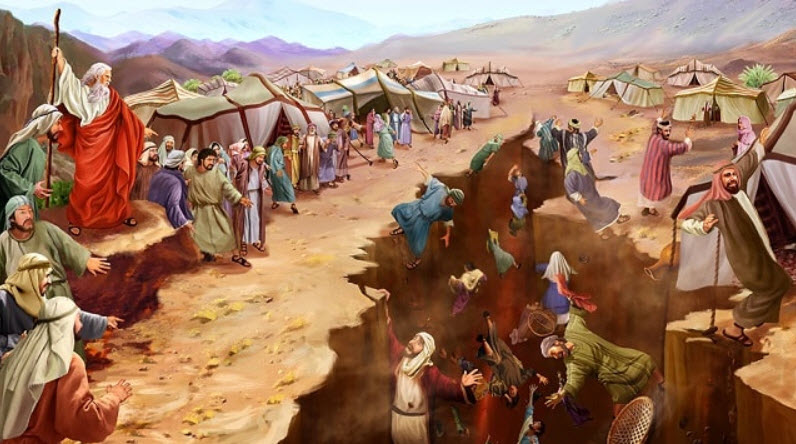
Mem Moment | Holy Disagreement
We are taught in Pirkei Avot (5:17):
“Any disagreement (מחלוקת/machloket) that is for the sake of Heaven will endure in the end. Any disagreement not for the sake of Heaven will not endure in the end. Whose disagreement is for the sake of Heaven? Rabbis Hillel and Shammai. Whose is not for the sake of Heaven? Korach and his supporters.”
The Babylonian Talmud further explains (Eruvin 13b) that Rabbi Hillel would teach the words of Rabbi Shammai before his own. Hillel was not worried about his own ego, but rather he cared about creating a Jewish discourse that held both the majority and minority opinions. All viewpoints were necessary and valued.
So, what is the deal with Korach, whose disagreements were “not for the sake of Heaven?” This week’s Torah portion, named appropriately Parashat Korach, begins with Korach and his congregation revolting against Moses and Aaron. We read:
וַיִּֽקָּהֲל֞וּ עַל־מֹשֶׁ֣ה וְעַֽל־אַהֲרֹ֗ן וַיֹּאמְר֣וּ אֲלֵהֶם֮ רַב־לָכֶם֒ כִּ֤י ׇכל־הָֽעֵדָה֙ כֻּלָּ֣ם קְדֹשִׁ֔ים וּבְתוֹכָ֖ם ה׳ וּמַדּ֥וּעַ תִּֽתְנַשְּׂא֖וּ עַל־קְהַ֥ל ה׳
“[Korach and his congregation] combined against Moses and Aaron and said to them, ‘You have gone too far! For all the community is holy, all of them, and God is in their midst. Why then do you raise yourselves above God’s congregation?’” (Numbers 16:3).
A leadership battle ensues: Moses and Aaron versus Korach and his supporters! Each group is to bring an offering before God and whoever’s offering is accepted shall be declared leader. (Spoiler: Korach loses, and the earth opens and swallows them all.)
Korach’s claim that the entire community is holy is correct; we are all created in the image of the Divine. But the issue lies in Korach’s approach. One medieval commentator, Bartenura, writes that Korach only cared about elevating his own power, rather than actually finding holiness through community. He was concerned with his own ego.
It is tough work to give both our opinions and those with which we disagree equal weight. But we are reminded to emulate the qualities of Rabbis Hillel and Shammai and to not let our egos outweigh healthy discourse and thus world building. As we go into this Shabbat, I encourage you to think: “How can I argue a bit more ‘for the sake of Heaven?’ How can I ensure that my disagreements will endure in the end?”
